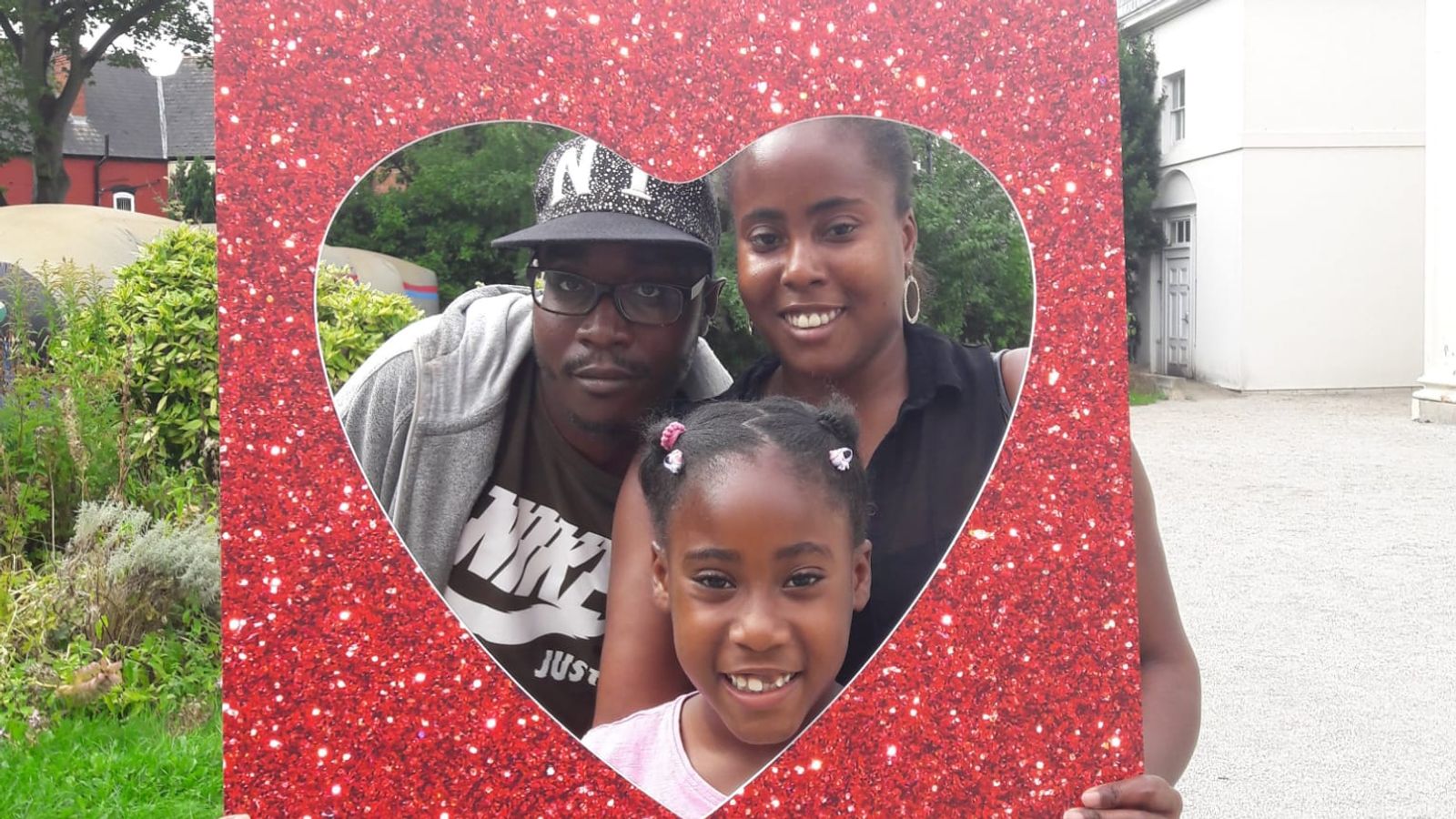Some 12,000 new blood donors from black backgrounds are needed to help save the lives of patients with sickle cell disease, according to the NHS Blood Service.
Sickle cell, the UK’s fastest-growing genetic disorder, is more common within the black community and ethnically matched blood provides the best treatment.
Many with the condition need the specific blood subtype Ro and demand has doubled for it since 2016, following a change in how the NHS treats people.
Previously, seriously ill patients had their blood topped up with transfusions. Now, prevention is key, with people seeing benefits to having all their blood replaced regularly.
“It is fine for sickle cell patients in the short term to receive non-ethnically matched blood,” explained Nadine Eaton, head of blood marketing for the NHS.
“But in the long term they will essentially build up antibodies, which will then mean that they can’t have blood transfusions.
“This will mean that they can be exposed to things like organ failure, loss of sight, and it can be life-threatening, so it’s really important we get more people of black heritage to come forward.”
Read more:
World first blood-matching test to aid sickle cell patients
MPs call for major changes over care of sickle cell patients
Please use Chrome browser for a more accessible video player
Sickle cell causes red blood cells to form into sickle or crescent shapes and become stuck in blood vessels, causing episodes of severe pain known as “crises” as well as serious or even fatal complications.
The Henry family from Wolverhampton all have sickle cell, and getting the right blood is an increasing concern for them, especially because they rely on 200 donors a year to save their lives.
Dad, Karl Henry, 41, said the condition had brought on pneumonia and a stroke, bringing him “to death’s door”.
“If it wasn’t for the blood, I wouldn’t be here… I always think one day there’s not a match for me, what’s going to be next?”
His wife, Rebecca Solomon-Henry has also suffered a stroke.
“You can get lethargic, tired, then the pain will come,” the 39-year-old explained.
“It’s always a worry, seeing friends with sickle cell. We’ve lost quite a few friends under the age of 35, 40, the life expectancy is quite young.”
Their 13-year-old daughter, Janayah, was also hospitalised.
She said: “I had an oxygen mask, and I was in there for 10 days.”
Janayah said she worried about the demand for blood, and for her parents.
Be the first to get Breaking News
Install the Sky News app for free
“If they get the blood, I don’t want anything to go wrong with them and get sick by it.”
Mrs Solomon-Henry added: “I’m just thinking in a real emergency how easy is it going to be, to be blood matched really quick and have an exchange or transfusion or top up it’s quite worrying which is why I’m on this mission here to get black donors.”







